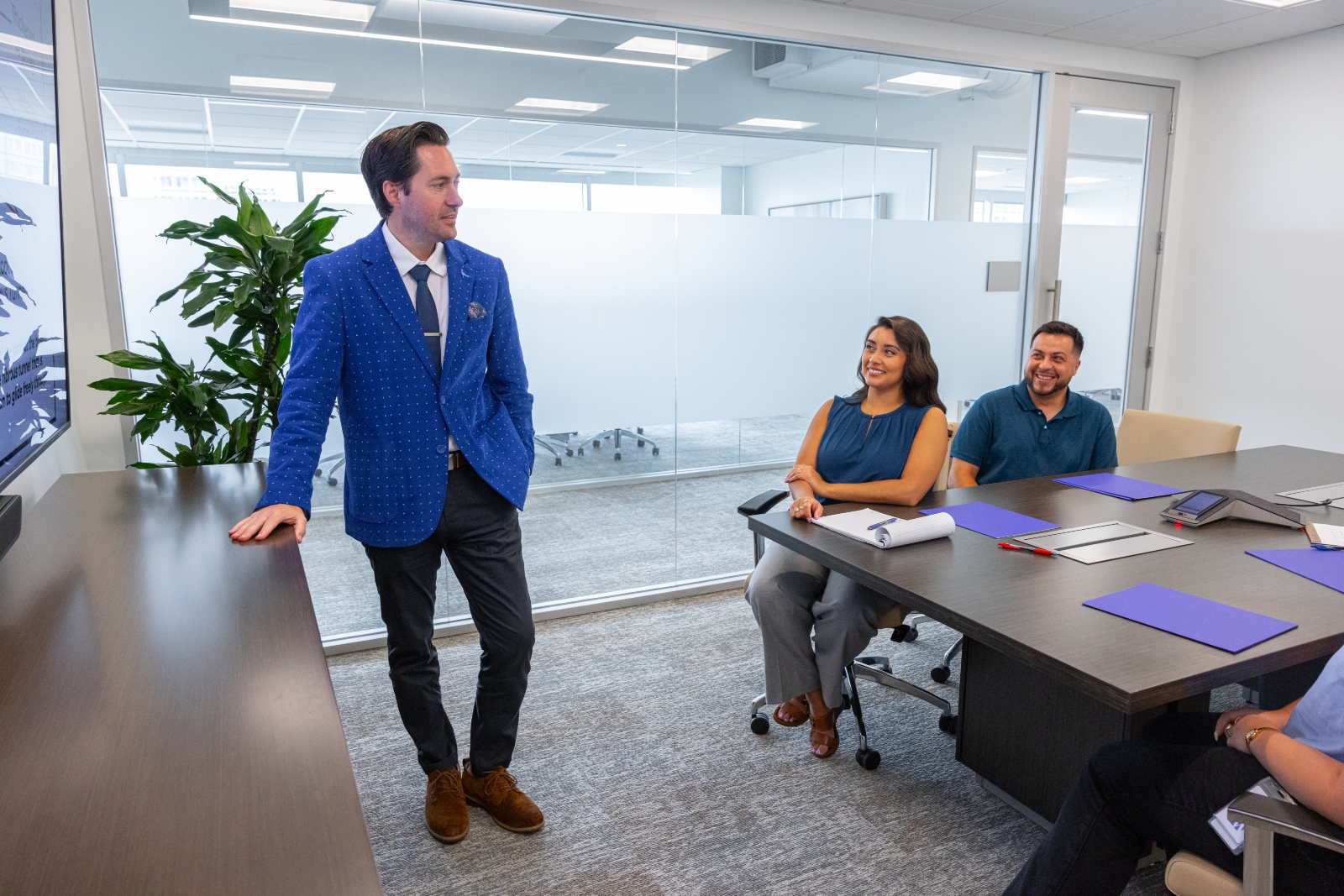Litigation Laboratory (LitLab) gives you strategic trial support. We deliver data-backed and instant feedback to help you fine-tune your case effectively.
From focus groups and mock trials to jury selection support and post-trial interviews, LitLab gives you the tools to understand how jurors think — and how to persuade them.
We don’t deal in theory. We give you strategic, real-world feedback you can act on right now. Whether your trial is months away or already underway, we’ll meet you where you are and get you what you need.
Surrogate jurors watch neutral case presentations and participate in moderated debriefings. Up to three cases can be tested per session.
A surrogate jury watches adversarial plaintiff and defense presentations. Includes deliberations and moderated debriefing.
We will go to court with you, to ensure that voir dire, challenges, and strikes are conducted in an effective manner. Prior to trial, we will develop juror profiles, coordinate juror background searches, and help you refine your voir dire plan.
We will attend trial and provide an analysis of the jury’s level of engagement, what jurors need to hear, and recommendations concerning trial plans for the next day.
We will conduct post-trial juror interviews via phone, or we will accompany you immediately after trial to interview jurors.
We will get up to speed on your case at any stage of the litigation lifecycle and offer insights on the issues that will be the most salient to the jury and the themes that need to be developed.
LitLab is designed to plug into your case wherever you need more insight. Whether it’s early testing with a focus group or sharpening voir dire the night before trial, we’re here to give you an edge, the kind that moves juries and wins verdicts.

Whether you're months out from trial or are about to walk into court, Litigation Laboratory makes it easy to get the insights you need when you need them.

Call us or fill out the form — we’ll connect quickly to learn about your case and where you need support.

We’ll customize a strategy based on your timeline, goals, and where you are in the litigation process.

Focus groups, mock trials, jury selection — whatever you need, we’ll jump in and get to work.


Come into LitLab. We’ll help you see what matters to jurors, and what doesn’t. From focus groups to courtroom support, we’re ready when you are.
A legal focus group is a session where surrogate jurors watch a neutral (non-adversarial) presentation of your case and give honest feedback. At LitLab, we test your themes, arguments, and visuals with real people — so you can learn what’s connecting and what needs to change.
Example: A plaintiff’s attorney, handling a wrongful death case after a commercial truck wreck, could test two different case narratives in one session. If jurors consistently respond better to a clearer, emotionally driven story, that insight could guide how the case is ultimately presented at trial.
A mock trial includes full adversarial presentations from both sides — plaintiff and defense — followed by juror deliberations and debriefing. This format helps uncover how jurors might weigh the facts, credibility, and legal instructions.
Example: In a trucking accident case, a mock trial could reveal that jurors respond poorly to a particular expert witness or legal theory. That kind of feedback might prompt a shift in strategy before the real trial begins.
Yes — we offer full-service jury selection support, including voir dire strategy, juror profile development, background research, and in-court consulting. We help you frame the right questions and make informed decisions during strikes and challenges.
Example: In a wrongful death case, LitLab might flag a juror who seems neutral in court but shows a digital footprint of anti-lawsuit bias. That insight could help avoid a risky seat in the jury box.
Courtroom observation means our consultants sit in on your trial to track juror engagement in real time. We look for reactions to key moments and track the persuasiveness of the arguments presented in court, then provide daily updates so you can adjust your presentation.
Example: If jurors begin disengaging during expert testimony, our team could alert you the same day — giving you a chance to simplify language or change how that testimony is delivered.
Post-trial interviews help you understand what mattered most to jurors, what worked, and what missed the mark. This insight can shape future strategy and strengthen your trial skills.
Example: After a close verdict, jurors might reveal that they didn’t fully understand a timeline or key piece of evidence. That type of feedback could be invaluable for improving clarity in the next trial.
Absolutely. Our case consult services are built to plug in at any stage — whether you're prepping for opening, responding mid-trial, or reassessing before closing.
Example: If a case is headed to trial in two days and you’re unsure about your central theme, a last-minute consult with LitLab could help refine the narrative and highlight what jurors are most likely to care about.